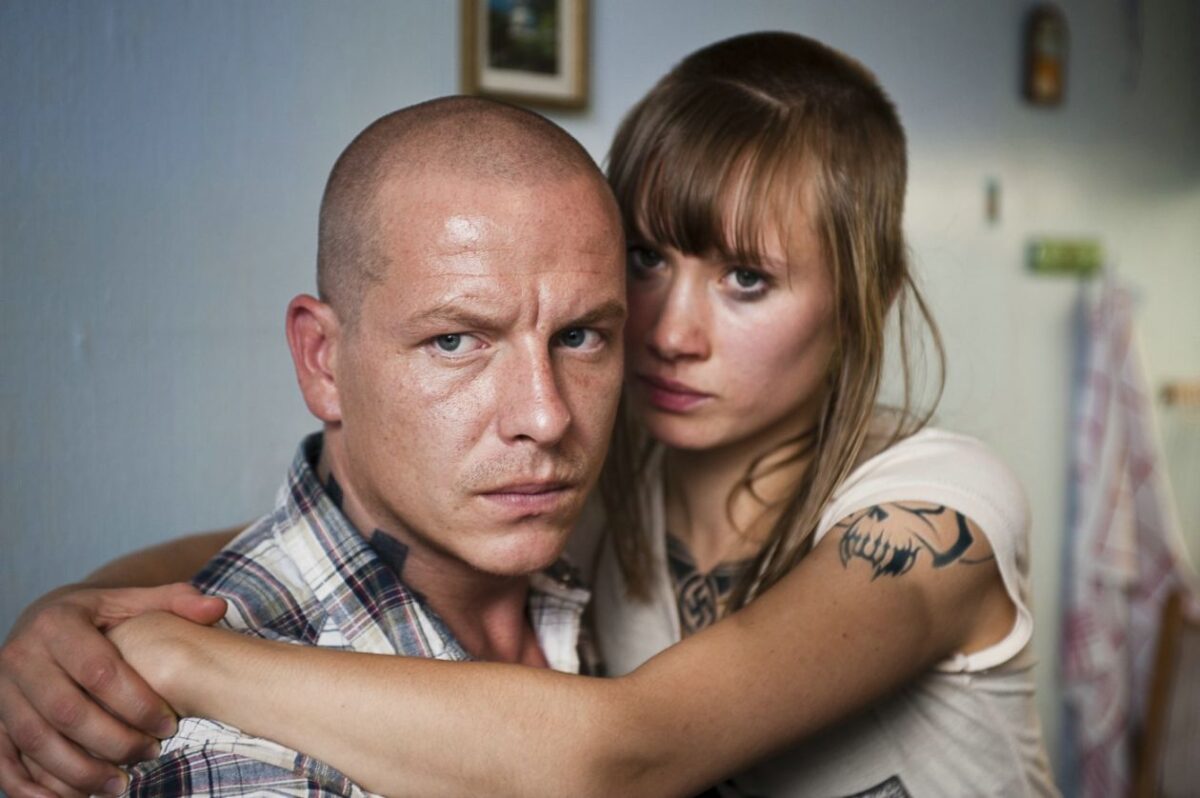Germany’s neo-Nazi scene is at the center of David Wnendt’s wrenching movie, Combat Girls, which will be digitally screened from March 11-13 by the Goethe Institut in Toronto in conjunction with the Toronto Jewish Film Society and the Neuberger Holocaust Education Center.
Wnendt focuses on two young, impressionable women who are drawn into a skinhead club in a city in eastern Germany, where neo-Nazism has been a persistent problem since Germany’s reunification in 1990.
Marissa (Alina Levshin), a cashier in her single mother’s convenience store, is a member of that rowdy club. Refusing to serve newly-arrived migrants, she believes that Germany is on a downward trajectory due to its liberal immigration policy. Levshin, a terrific actress, portrays Marissa as a troubled soul living on the cusp of a volcano.
In one of the first scenes, the club’s xenophobic members, led by Marissa’s boyfriend, Sandro (Gerdy Zint), harass and pummel a Vietnamese couple on a train. Shortly afterward, Sandro is arrested, whereupon Marissa informs her mother she wants to have a baby with him. Zint, constantly glowering, is convincing as a neo-Nazi thug who despises foreigners.
Apart from Sandro, the only other person Marissa loves is her ailing grandfather, a World War II veteran who treats her tenderly and admits he’s done some terrible things in his life. Marissa’s mother, distant and gruff, hates him with every fibre of her being. Only later in the film is her visceral hatred explained.
Svenja (Jella Haase), 15, is a honor student, chalking up top marks in all her subjects. She and her mother have a good relationship, but she dislikes her stepfather, a difficult and pedantic man who imposes his demands on her. Svenja’s boyfriend introduces her to the neo-Nazi skinhead club.

Aside from Marissa, Svenja and Sandro, the main character in the film is Rasul (Sayed Ahmad Wasil Mrowat), a Muslim refugee from Afghanistan who ignites Marissa’s ire. An orphan, he’s about 16 years old.
Rasul and a companion visit a lakeside beach where Marissa and her neo-Nazi friends are sunning themselves. The neo-Nazis attack them. By way of retaliation, Rasul breaks the rearview mirror of Marissa’s car. Marissa, spotting them on a scooter heading home, runs them off the road.
Much to her indignation, Rasul turns up again, first at Marissa’s mother’s shop and then at a building where she injures her foot. Rasul kindly tends to her wound and offers her tea and candy, softening her up.
The film shifts back to Svenja as she and her boyfriend join a wild skinhead house party. The guests watch an antisemitic film from the Nazi era and listen to a speech by Adolf Hitler. Svenja meets Marissa, who’s initially nasty.
Marissa’s outlook changes after a death in her family. She gradually draws away from Sandro, develops a loathsome attitude toward the club, revises her adoring view of her grandfather, and grows closer to Rasul, whose sole desire is to join relatives or friends in Sweden.
Combat Girls is a hard and gritty film that exposes the dark underbelly of German society. Germany is a vibrant democracy after 12 years of Nazi rule in the 1930s and 1940s, but it is plagued by demons.
After the screening, Elisa Hategan, a writer who was once a member of the far-right movement in Canada, will give a talk on political extremism.
